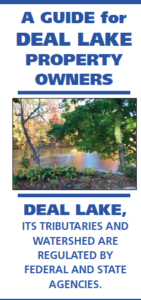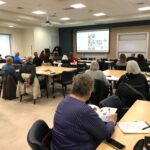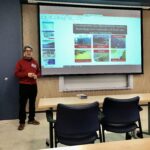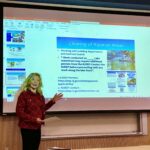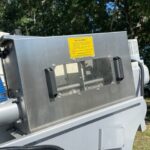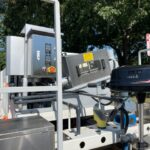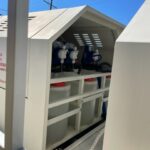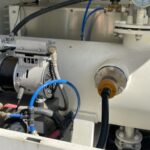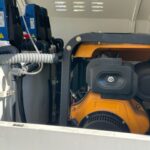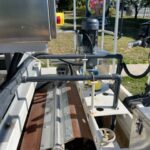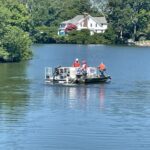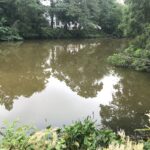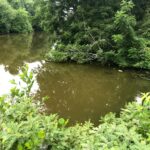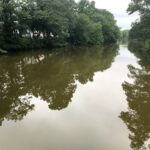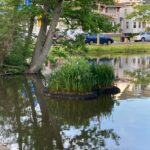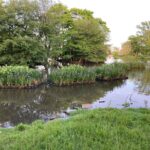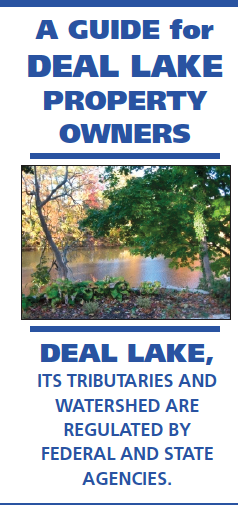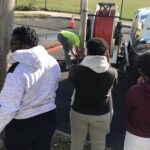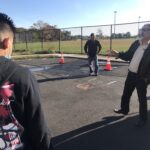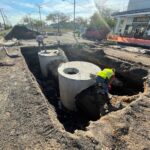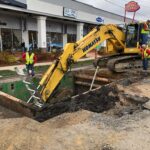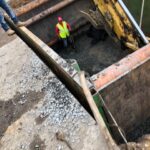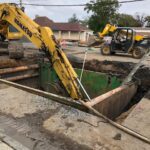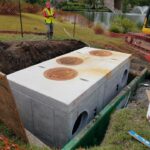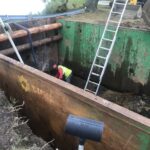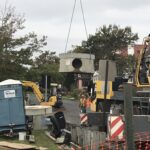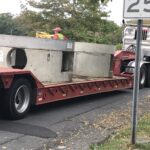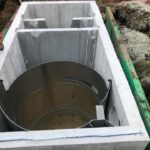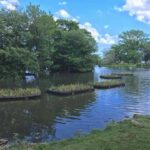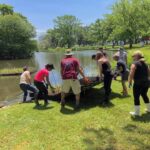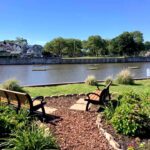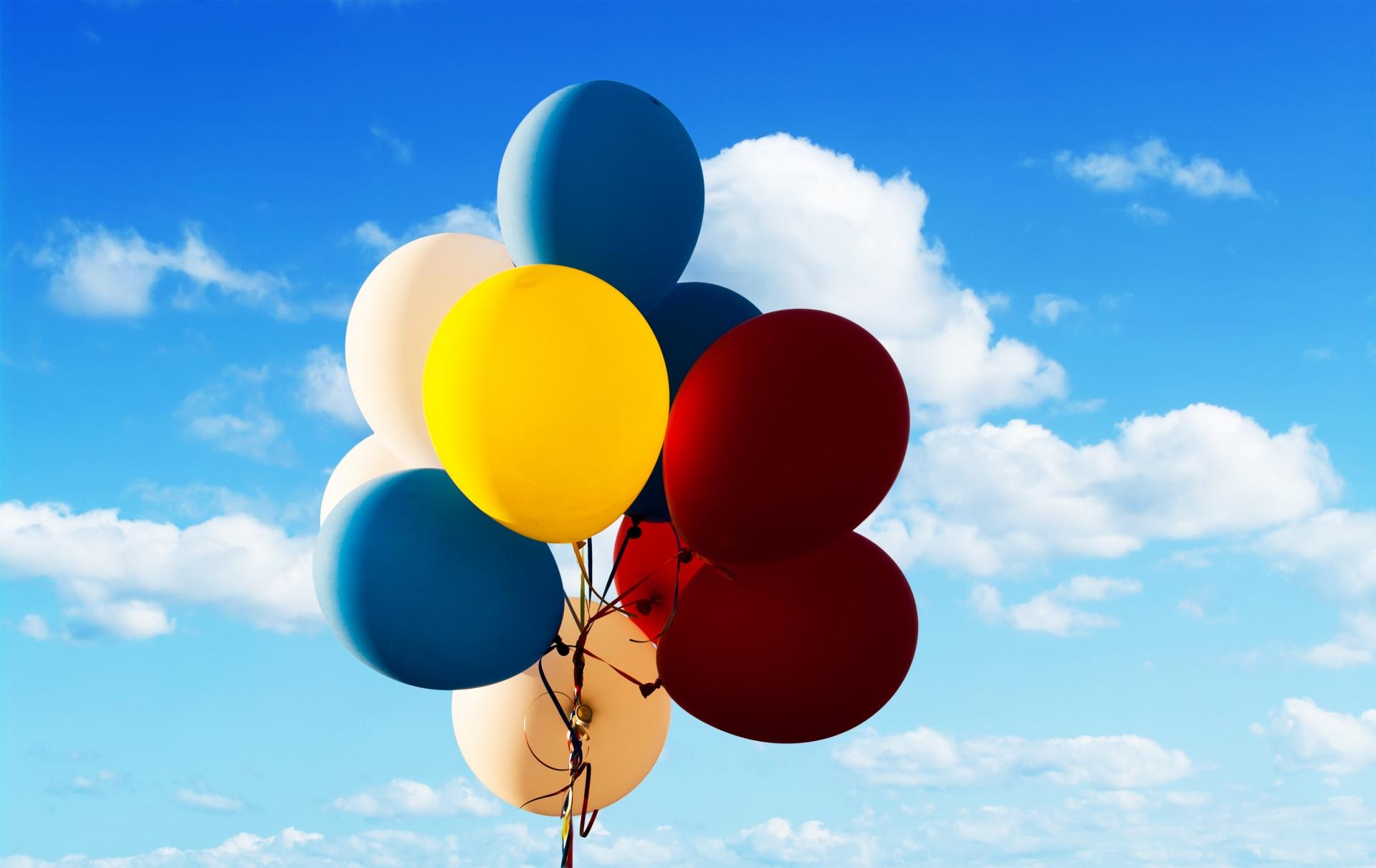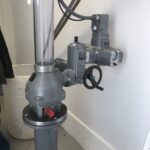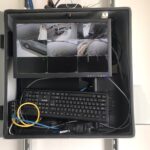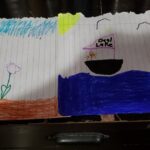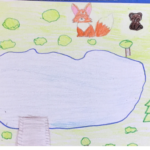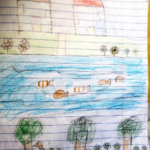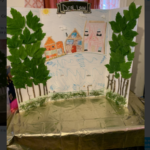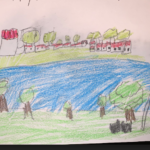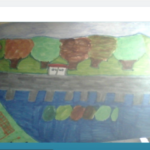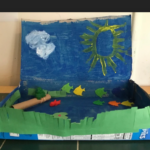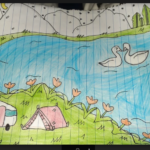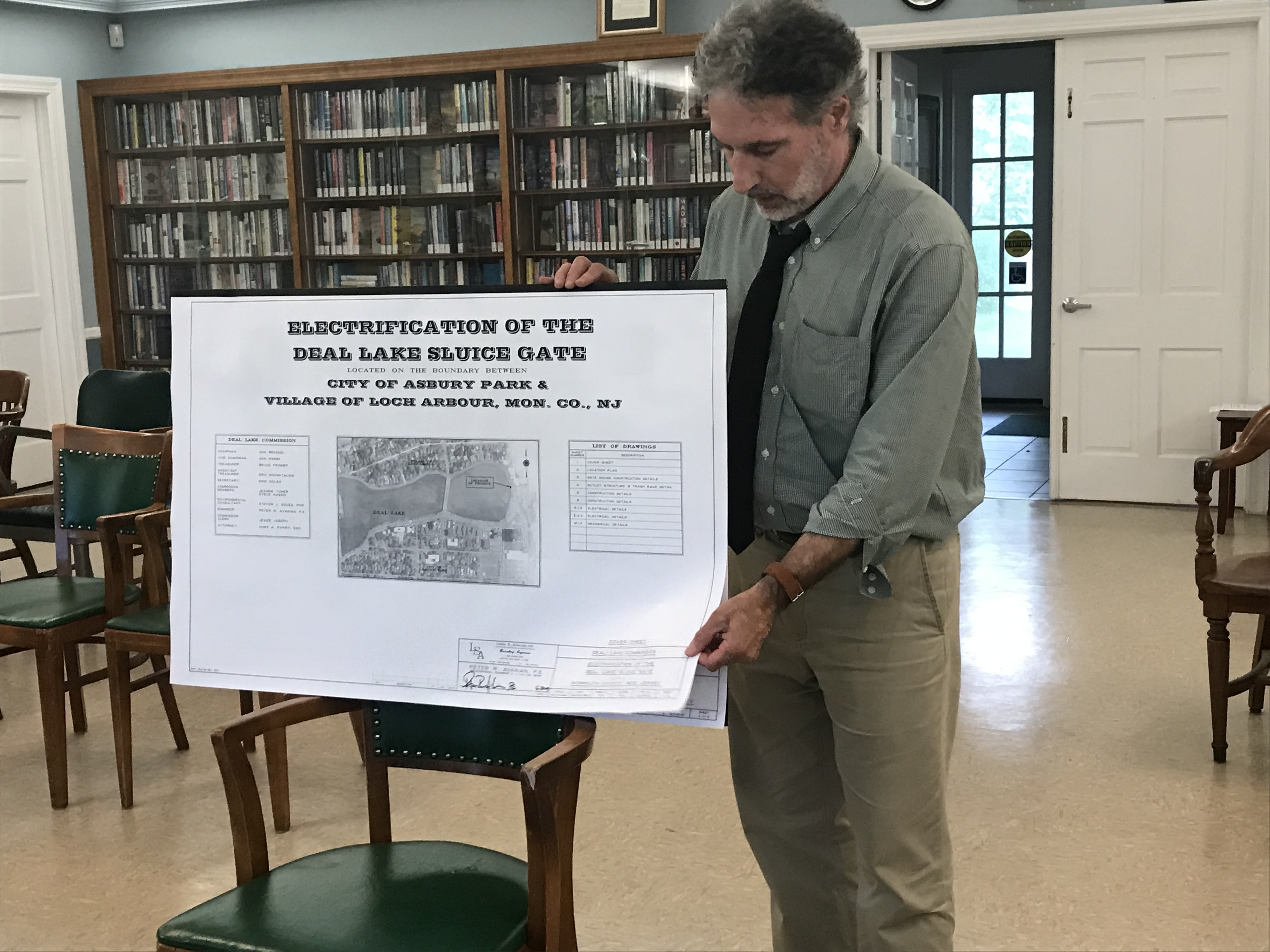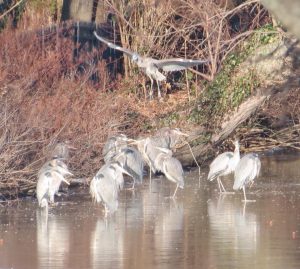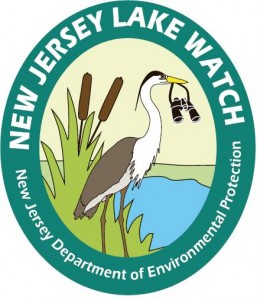June DLC Meeting date – 6/19/25 @ 7:00PM – ZOOM

This meeting will be held on ZOOM.
Click here for information on attending the meeting via ZOOM. Meeting links change monthly.
Please note:
To join the meeting using video, your FULL name must be visible on the Zoom screen.
If during the public session, you wish to be seen, turn your camera on.
Visit Us On Facebook for Flume Status and other timely information!
Deal Lake Watershed Alliance Nature Paddle and Tour May 24 9:00 AM
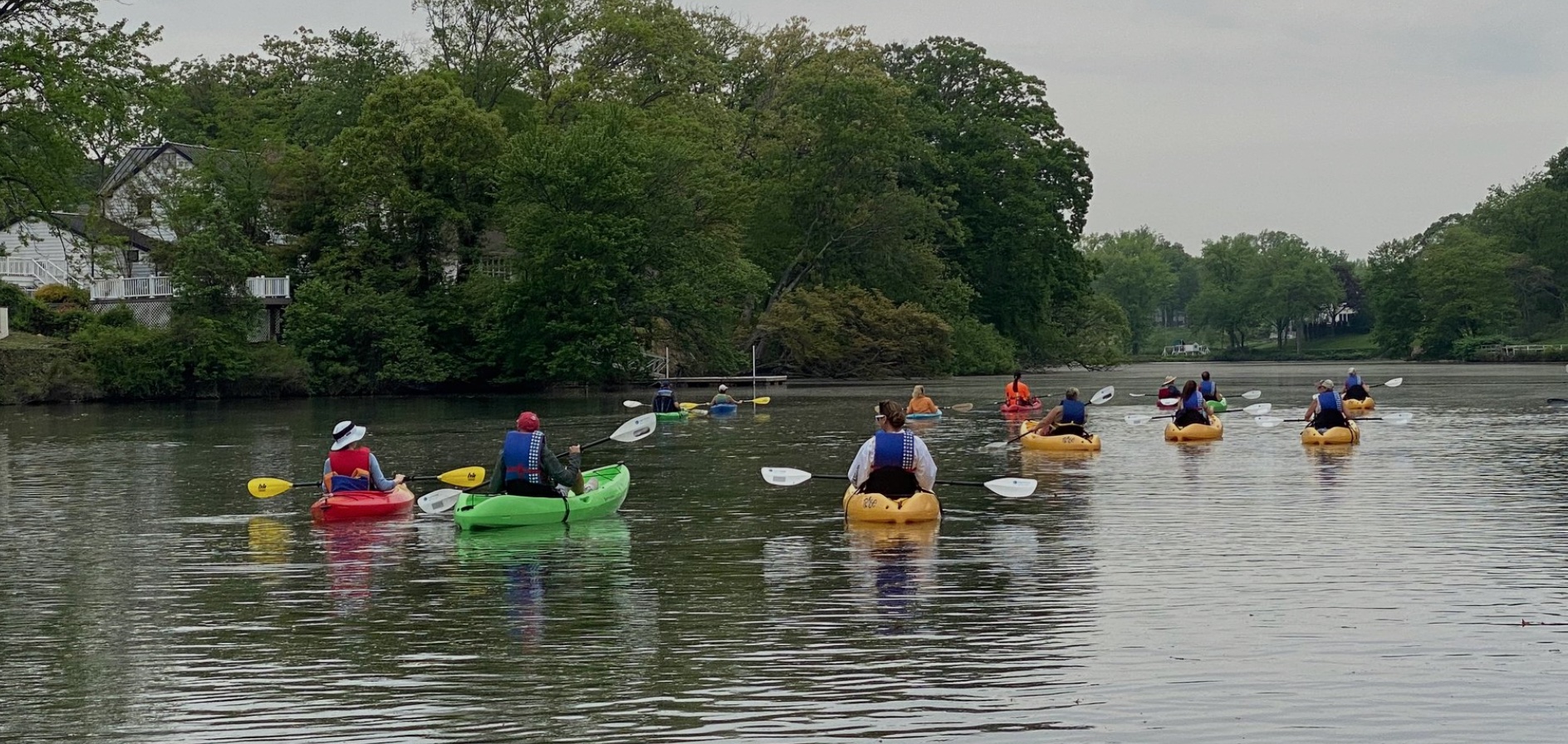
The Nature and Paddle Tour adventure feature Paddle Time Kayaks ACA-certified instructors and Bob Jarozewski as the Deal Lake nature expert. Our partnership with DLWA is special and he supports the nonprofit efforts by offering a discounted rental rate of just $25 per person for a two hour tour.
https://www.paddletimekayaks.com/services/dlwa
SUNSET LAKE CLEAN UP June 7
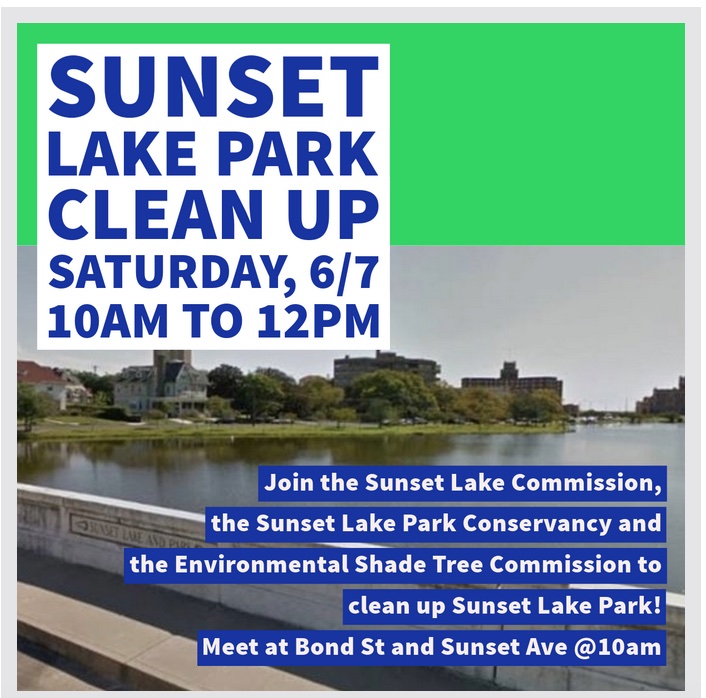
Update on Recreational Activities at Deal Lake
Thank you to Asbury Park for rapidly fixing the low-rate spill into Deal Lake
The DLC
USDA/DLC Goose Management 2025 Initiative is Underway.
We need your help.

This important DLC initiative is done in conjunction with all seven lake towns to help reduce the goose population around Deal Lake. We began this lake wide activity with the USDA in March.
There are many reasons to manage the geese population around the lake.
Canada Geese, on average, drop between 1 to 1.5 pounds of feces every day! Droppings can carry e.coli, salmonella and other bacteria harmful to humans and pets.
Geese are major contributors of Phosphorus and Nitrogen in waterways. These nutrients come directly from goose excrement and cause lake eutrophication.
The DLC and the USDA ( US Dept of Agriculture) have entered into a contract again this year to have the USDA addle goose eggs on private and public property on Deal Lake, as long as the property owner has given the USDA permission to go on their property to treat the eggs.
How You Can Help The DLC with the USDA/DLC Initiative
If you receive a notice and permission form from the USDA regarding permission to treat a goose nest on your property, please send it back to USDA asap, so the nest can be treated.
Eggs hatch and so, time is of the essence.
If you see an active goose nest, please notify the DLC via the email address above.
Enter the following information:
Subject: Goose Nest Sighting
Your Message: Please include the specific address or as close to it as you can, and/or any other information that will help the USDA (paddling by kayak) to locate the nest.
If you would like to know more about how nests are treated please see our web site:
Deal Lake Clean Up, Soggy, but Successful
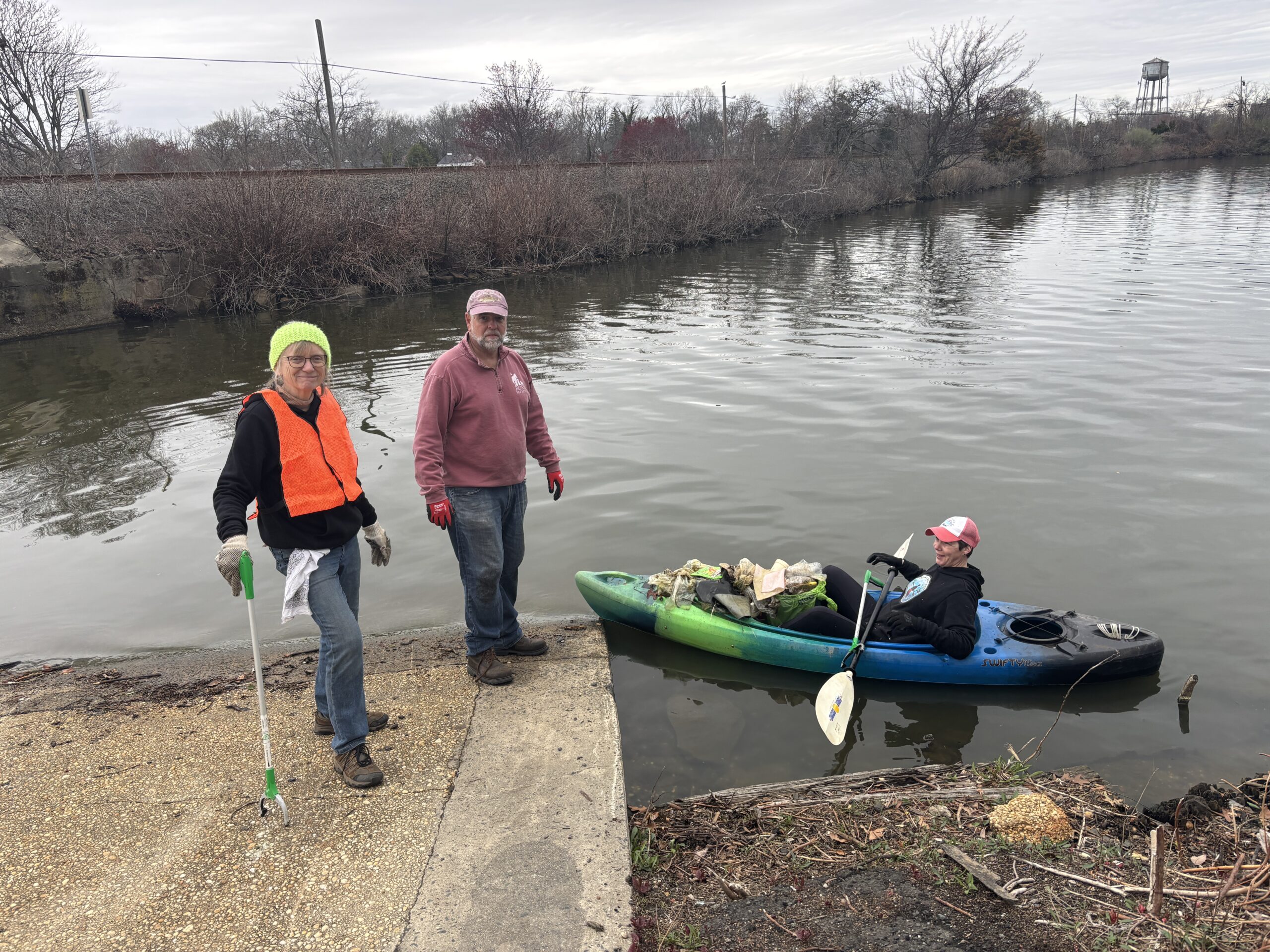
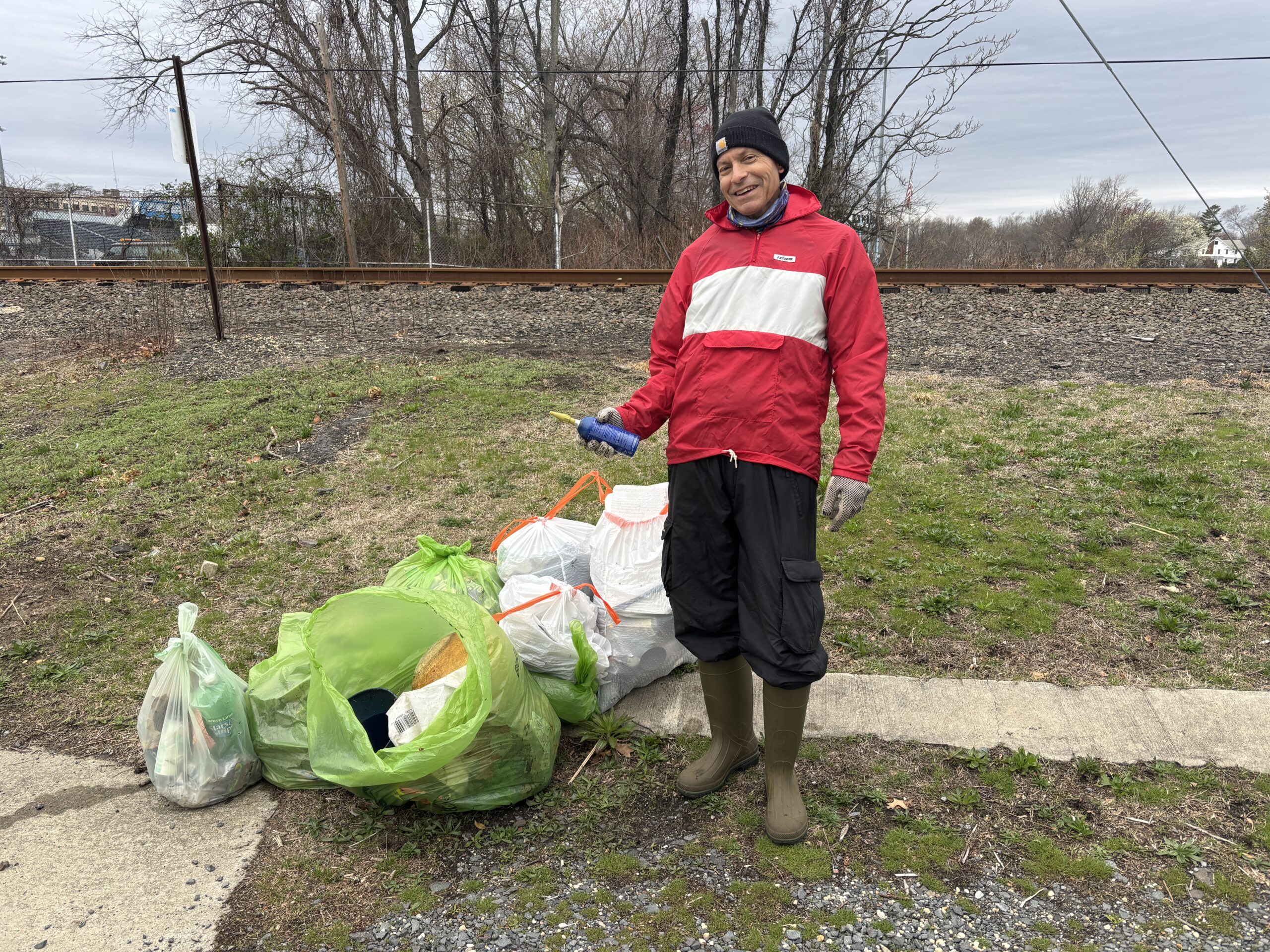
STUDENT POSTER CONTEST w/PRIZES FOR STUDENTS BEGINS
The REAL Battle is Not Over Yet
Encourage Governor Murphy to Stay the Course

Thanks to you and so many others who are concerned about flooding due to the effects of climate change, Governor Murphy’s administration released the New Jersey Protecting Against Climate Threats Resilient Environments and Landscapes rule in August. These rules, known as REAL rules, will help protect New Jersey communities from the effects of climate change.
Here is a link to info on the REAL RULES: https://thewatershed.org/25671-2/
There are special interests that did not want to see the REAL rules proposed and they have been working hard to see that these rules are weakened or never adopted. The Administration is hearing from these interests that the protections that the REAL rule provide are too much.
The REAL rules will help protect our communities from flooding. As we are seeing on social media and the news, storms are having catastrophic effects on our communities. Please tell the Governor thank you for proposing the rules and encourage him to stand strong and not to weaken the rules.
Here is a petition you can sign, if you want the Governor to stand strong and stay the course on REAL rules:
https://thewatershed.org/tell-governor-murphy-to-stay-the-course/
Awesome News!
Murphy Administration Removes Bald Eagle And Osprey From New Jersey’s Endangered Species List

In the last few years, Deal Lake residents who attend DLC meetings, report exciting observations of Ospreys and Bald Eagles swooping over the lake and nesting in the trees and on tall buildings along the lake.
We think many of you would be interested in knowing this excellent news about these magnificent species.On January 6, the Murphy Administration adopted regulatory changes that remove the bald eagle and osprey from the state’s list of endangered species, reflecting more than 40 years of work to restore these iconic birds to New Jersey’s landscape.
This upgrade is based on determinations by New Jersey DEP Fish & Wildlife that the populations of these birds have recovered to the point at which their survival in the state is no longer in jeopardy.
This milestone reflects decades of collaborative state and federal Conservation efforts.Both bird species were pushed to the brink in the 1970s by the widespread use of DDT (dichloro-diphenyl-trichloroethane), a chemical pesticide that accumulated in the food chain and caused the birds to lay eggs with shells that were too thin to survive. In the early 1980s, New Jersey had just one remaining bald eagle nest, a pair in Cumberland County.
The federal government banned DDT in 1972, marking a pivotal step in the ultimate comeback of the species.
State and federal efforts to restore the local bald eagle population kicked off in the ’80s with the relocation of eagles from Canada and an artificial incubation program.

Work to save the ospreys focused on moving threatened nests to areas where DDT was less frequently used and building hundreds of stands in marshes and coastal areas to give ospreys places to build new nests.
NJ Endangered and Nongame Species Program Chief Kathy Clark said: “These species would have been lost without years of work to understand the threats and enhance conditions to allow eagles and ospreys to thrive and recover. This was a long-term commitment not only by the state, but also conservationists from non-profit organizations and our incredibly dedicated volunteers. ”
If you’d like to know more about the conservation efforts to restore these iconic birds and the laws that are in place to ensure these species continue to thrive, check out :
https://dep.nj.gov/njfw/news-2025-01-06-murphy-administration-removes-bald-eagle-and-osprey-from-new-jerseys-endangered-species-list/
Good News For Trees: 2024 Protective Law in NJ

The DLC has long been an advocate in educating the public about the important role that trees play in the mitigation of storm water run off, pollutant reduction removing carbon from the atmosphere, cooling our neighborhoods, and filtering our water and air.
In 2022, the Deal lake Commission sent letters to all seven towns encouraging them to work toward developing a tree ordinance and applauding those lake towns that had already done so. We spoke to the important benefit of trees, particularly as they relate to Deal Lake.
Last year, the New Jersey Department of Environmental Protection (NJDEP) revised the Tier A Municipal Stormwater General Permit. NJ also took steps to reclassify all municipalities into the Tier A category. The revised permit requires municipalities to adopt and enforce a community-wide ordinance covering tree removal/replacement, if they didn’t already have an ordinance that meets the requirements.
To assist municipalities in adopting a complying ordinance, the NJDEP undertook the development of a model tree replacement/removal ordinance, which has been finalized and is available on the NJDEP website.
The due date for municipalities to adopt a tree removal/replacement ordinance was May 1, 2024.
We believe that many of you who understand the important benefits of our trees and have been interested in advancing this issue, will be happy to know that each of the Deal Lake towns now have a tree ordinance in place.
Tree Removal/Replacement Ordinance is now law in every municipality. You can view these ordinances on each towns’ web site. Google i.e. Tree Ordinance Asbury Park NJ, Tree Ordinance Neptune NJ, etc. to see a town’s ordinance.
The DLC hopes that you will share this information with others; realtors, home buyers, neighbors etc. so that everyone may become informed about the NJ law to preserve and protect one of our most valuable natural assets.
The Impacts of Storm Water Runoff on the Lake and How You Can Help

Excess nutrients from fertilizer, detergents used on homes and sidewalks, etc, cause algae blooms, when then die and decay consuming oxygen causing fish kills.
Small pieces of litter, such as cigarette butts or plastic pellets that blow off garbage trucks look like food to many aquatic animals. Once ingested they can block the digestive track and kill the animal.
Rainfall that cannot absorbed into the ground because the surfaces are covered with impervious surfaces (concrete, asphalt etc) washes sediment into streets that wind up in the rivers and lakes, causing in filling and pollution of the lake.
You can help by:

1) Using little to no fertilizer on your property (follow the directions)
2) Sweeping up the debris and leaves on your street and keep it out of storm drains
3) Use as much permeable material on your property as you can. Permeable surfaces are alternatives to typical paving methods that can help to greatly increase infiltration and decrease flooding and run-off issues.
Permeable materials include interlocking pavers, permeable asphalt, and permeable concrete. Once installed, these materials reduce flooding and recharge groundwater.
Deal Lake Watershed Alliance Paddle News
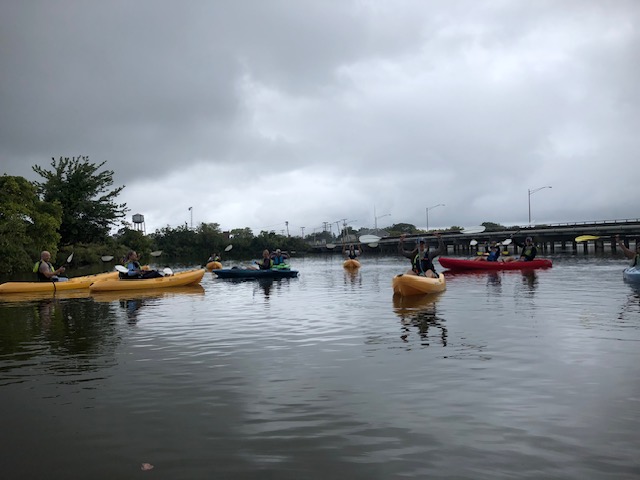
“the paddle was great, though we did get rained on a little. We had 11 boats, 13 people. The cloudy, overcast conditions allowed for great bird spotting, including blue herons, great egrets, green herons, black crowned night heron, kingfishers, and more.”
Happy Birthday Deal Lake Commission! 50 Years Old
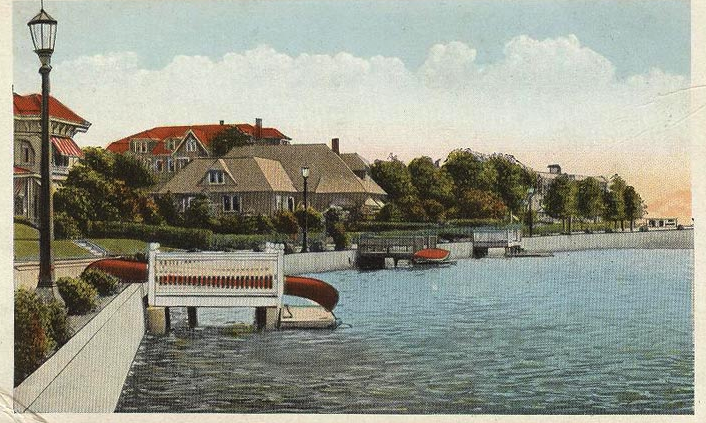
The Deal Lake Commission, founded in 1974, is celebrating its 50th birthday this year.
The 1970’s was a seminal decade for environmental protection. It’s first three major accomplishments; The National Environmental Policy Act, The Clean Air Act and the creation of the EPA were groundbreaking environmental laws.
Flash back to 1970, the First Earth Day. The dangers of air and water pollution were front and center in the nascent American environmental movement. At the time, with vehicle and industrial emissions running rampant, many American cities were choked with smog, our oceans and other water bodies were used as open sewers.
In 1974, the seven towns surrounding Deal Lake; the largest lake in Monmouth County, created a charter with a mission to provide leadership, guidance, and resources to preserve and restore Deal Lake and its tributaries as a healthy and stable ecosystem.
The DLC is proud of it’s decades of work to improve overall the environmental quality of properties throughout the Deal Lake watershed, and it’s continuing efforts to control lake levels during storms.
The commissioners have been discussing ways to celebrate our 50th Birthday.
Ideas from the public are welcome.
Flume Operation Video
The Ocean Office of Emergency Management created this video for the public.
The video explains the operation of the flume and how it can help to control flooding around Deal Lake.
COASTAL LAKES OBSERVING NETWORK (CLONET) HOLDS ANNUAL MEETING
Deal Lake Commission Presents
CLONET is focused on improving the health of Monmouth County’s 12 lakes; Deal Lake, of course, is one of these lakes.
The CLONet project, Monmouth and Urban Coast Initiative Staff work alongside and train members of these 12 lake organizations to monitor physical (for example, depth, sediment thickness, temperature, salinity), water quality (dissolved oxygen, pH), and biological (algae, bacteria) parameters in their waters. The University researchers have developed standardized monitoring methods and quality assurance protocols for the community groups.
On Dec 12, CLONET hosted all 12 Coastal Lakes groups at Monmouth University to discuss the results of water testing in all 12 lakes. The focus this year was on restoration grant opportunities, resilience and taking a regional approach to solving the lakes’ common problems.
DLC Commissioner Jeannie Toher and Dr. Souza presented for the DLC.
You can see the lake data that has been collected over the past year and previous years on CLONET’s web site:
https://jadolf-phab-apps.shinyapps.io/CLONet_data_explorer/
Trees Increase the Long –Term Health of Lakes
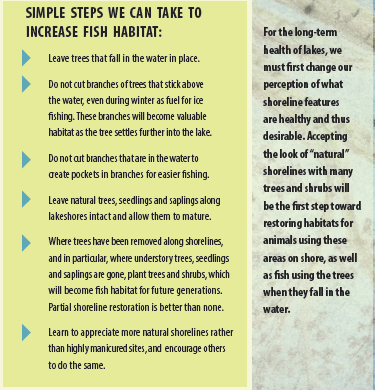
Invasive Weed Treatment by the DLC 2024


Weeds, or more correctly aquatic macrophytes, is the term used to describe the aquatic plants growing in Deal Lake. Aquatic plants are an important and intrinsic component of a healthy and vibrant lake ecosystem. They provide valuable habitat for fish, amphibians and a whole host of aquatic life. They also help keep the shoreline areas of the lake stable and less prone to erosion. And they also help filter, remove and assimilate nutrients and sediment that wash into the lake from lawns, paved areas and other upland sources.
The three most common weed species growing in Deal Lake are Eurasian Water Milfoil, Coontail and Parrot Feather. All three of these plants look fairly similar. They grow below the water’s surface in thick stands. Additionally, although examples of highly beneficial native and desirable plant species, at times and in given locations Yellow Waterlily and Pink/White Waterlily can reach nuisance densities that require management. While the Dela Lake Commission actively addresses the growth of Eurasian Water Milfoil, Coontail and Parrot Feather, we are much more selective when it comes to controlling Yellow Waterlily and Pink/White Waterlily.
When Weeds Become a Problem for the Lake
At times, the growth of aquatic plants can get out of control and begin to interfere with the recreational enjoyment of the lake. This is especially true when it comes to the growth of the non-native, invasive species; the true weeds of the lake. The problem with many of these non-native, invasive weed species is that they out compete the desirable native plants and, in the process, not only replace the native plants but alter the lake’s ecology.
Due to the lower cost, ability to target non-native, invasive weeds and ease of application, as of late, the DLC has used herbicides as the primary way of controlling the lake’s weed problems.
Herbicides are designed to chemically control weed growth. These chemicals are specifically formulated and licensed by both the USEPA and NJDEP for use in lakes and ponds. They must be applied by a NJDEP licensed and trained applicator and in accordance with a NJDEP permit that includes a number of use restrictions. Although some aquatic herbicides may affect upland plants, they are considered very safe by both the USEPA and NJDEP relative to fish, amphibian, reptile and bird life as well as humans.
How Is This Treatment Carried Out and Where?
This year, the weeds growing in the Colonial Terrace section will be treated.. The plants targeted for control were Eurasian Water Milfoil, Coontail and Parrot Feather. No treatments were conducted to control the waterlily. The treatments were conducted in early June. Because there are no “pre-emergent” aquatic herbicides, treatments cannot be conducted before some weed growth has started. Also, the scheduling of treatments has to take into account weather conditions, lake flow, and turbidity, all of which can affect the efficacy of the herbicide.
During the March DLC Meeting: Dr. Souza will discuss the Weed Treatment program for this year.
Important News About DLC Shoreline Protection Efforts
A large part of the mission of the Deal Lake Commission (DLC) is “to provide leadership, guidance, and resources to preserve and restore Deal Lake and its tributaries as a healthy and stable ecosystems…”. Protecting the lake’s natural shoreline is an important element of this mission. A well vegetated shoreline is less subject to erosion, serves as a natural stormwater “filter”, and provides critical habitat for aquatic and riparian species. Improper clearing of vegetation, soil grading, building of filling along the lake front can rapidly destabilize the lake’s shoreline and result in an array of environmental impacts that compromise the lake’s water quality and ecology and can even exacerbate flooding.
The New Jersey Department of Environmental Protection (NJDEP) has in place regulations specific to the land 50 feet adjacent to the Deal Lake shoreline as well as any land 50 feet adjacent to all streams draining into Deal Lake. These lands are often referred to “riparian areas” and are an important ecological element of the ecosystems of both Deal Lake and its tributary streams.
Currently, five NJDEP environmental complaints have been filed, each specifically dealing with property owners who have removed trees and riparian vegetation, disturbed/altered the shoreline, or have placed fill (soil) in the lake. In all five cases, the NJDEP was alerted by concerned residents via the NJDEP HOT LINE. The DLC has subsequently remained in contact with the NJDEP regarding the NJDEP’s investigation of these complaints to confirm whether these reported activities violated NJDEP rules and administrative codes that protect the lake, the lake’s tributaries and the wetland and riparian areas abutting the shoreline of the lake and its tributaries.
Please note that neither the municipalities nor the DLC regulate or issue permits or approvals for shoreline work or work conducted adjacent to the lake or its tributaries. Only the NJDEP issues permit(s) or approval(s) for such work whether it be some form of maintenance or new construction.
Therefore, property owners are obligated to contact the NJDEP, rather than the local municipal building department, before beginning any construction, renovation or maintenance project along the shoreline of the lake or its tributaries. The NJDEP will guide you and/or provide reference to the applicable regulation defining what can and cannot be done within the lake and within the 50’ area adjacent to the lake.
Here are handy two links to NJDEP Division of Land Use Protection for guidance relative to in-lake and shoreline regulations and permits:
1. https://dep.nj.gov/wlm/lrp/permit-applicability/
2. NJDEP Contact : https://dep.nj.gov/wlm/contact-us/
You can contact the NJDEP 24-hour HOT LINE by calling 1-877-WARNDEP( 1 877-927-6337). When doing so, keep a record of the report you filed and the report number assigned to your call. This will help you and the DLC follow up on the status of action taken by the NJDEP.
The DLC provides educational workshops and outreach materials for the public as well as municipal employees and elected officials on this topic. The DLC has prepared printed guides as well as digital information available to the public via the DLC’s website (https://deallake.org/ ). These materials are designed to keep everyone properly informed relative to what a property owner should do when buying, building or renovating, or clearing property along the shoreline of the lake and its tributaries.
How You Can Help Protect The Shoreline

The Deal Lake community can help the DLC meet its mission by sharing this information. Refer to the DLC web site (left column on Home Page) for more information on this and other issues relevant to the protection and restoration of Deal Lake. The DLC appreciates your help with this and other important matters critical to promoting the ecological health of Deal Lake. We can’t do this without your assistance and support.
DLC Hosted Presentation Given by Two Prominent Lake Scientists for the Public
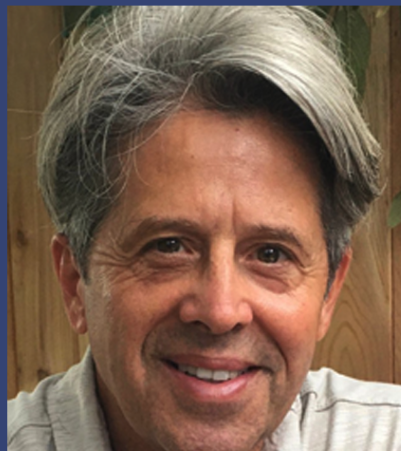

Asbury Park Fishing Club 2023 Carp Contest Reeled in 100 Pounds of Carp
Invasive carp cause serious damage to the native fish populations in the lakes and rivers that they infest because they out-compete other fish for food and space.
The Asbury Park Fishing Club sponsors a Carp Contest each year, giving prizes for the most and the largest fish caught. As in previous years, the DLC co sponsored this event.
The contest was held on a misty April 15 morning. Dozens of people turned out to fish for carp.
Prizes were given for the heaviest fish and to those who caught the most carp. If you missed it, we will see you next year!


This year, DLC Alternate Commissioner Melanie Nowlin came up with an innovative way to resource the 100 pounds of carp that were caught.
Melanie reached out to the Raptor Trust located in Millington NJ. The Trust borders the Great Swamp National Wildlife Refuge. The Trust is home to approximately 50 resident birds, and has an on-site medical and rehabilitation center and education center. The Trust said they’d be delighted to receive fresh fish for their birds.
After the contest, Melanie, her partner Frank Matthews and DLC Commissioner Margot Fernicola packed up a hundred pounds of fish on ice and transported them to The Raptor Trust more than an hour away.


One of the Raptor Trust Residents
DLC Wins Prestigious Award for Environmental Excellence

https://www.youtube.com/watch?v=yayIyRj9r3w
The Deal Lake Commission is proud to announce that the DLC is the winner of the 2022 Governor’s Environmental Excellence Award in the category of Watershed Management and Water Resources.
Presented annually since 2000, the Governor’s Awards for Environmental Award, its premier awards program recognizes outstanding environmental performance, programs, and projects in NJ.
This year, the DLC has been acknowledged for outstanding performance in the category of Watershed Management and Water Resources.
To learn more about this award and qualifications see: https://dep.nj.gov/awards/awardsoverview/
MURPHY ADMINISTRATION AWARDS the DLC $890,400 IN AMERICAN RESCUE PLAN FUNDS FOR WATER QUALITY IMPROVEMENT PROJECTS

The Department of Environmental Protection is awarding $9.95 million in grants to local government agencies, nonprofit groups, universities, and others to fund projects that will improve water quality and reduce the impacts of nonpoint source pollution from stormwater on publicly accessible lakes throughout New Jersey, Commissioner Shawn M. LaTourette announced this week.
Grant funds may be used to improve lake water quality, control nutrient levels to prevent future harmful algal blooms, and to enhance, improve, or protect lake-associated conservation and recreation uses. The funding stems from a $10 million federal American Rescue Plan Act award to New Jersey that was appropriated by the state Legislature for the management and maintenance of lakes for recreation and conservation purposes.
The Deal Lake Commission is one of 22 NJ recipients to receive this grant money in the amount of $890,400.
Green infrastructure Best Management Practices and other DEP-approved stormwater management devices will be used to reduce nonpoint source pollutant loading and improve lake water quality. A preliminarily designed stormwater quality improvement plan developed with Ocean Township, Monmouth County and Seaview Square Mall also will be implemented.
Dr Souza will speak about this grant in greater detail during the January 19th DLC meeting.
DLC Installs Plaque to Pay Tribute to Joe Pallotto near new Surge Chamber

This is inscription on the plaque:
Joe Pallotto spent a lifetime enjoying and helping to improve Deal Lake. He spearheaded an effort with many groups, along with Congressman Pallone, to acquire government funding of over $5 million to replace the damaged wooden section of the Deal Lake Ocean Outfall pipe with a precast concrete replacement in 1986.
In 2000, the beach replenishment projects clogged the outfall pipe and prevented herring and other migratory fish from entering Deal Lake. Joe again lead efforts to obtain $8 million in funding to extend the outfall pipe and rebuild the 8th Avenue jetty in 2006.
Joe was responsible for maintaining the level of Deal Lake during storm events in the 80’s and 90’s. During the same period, he directed the bi-annual Deal Lake Cleanup campaign, which originated with the Asbury Park Fishing Club in 1976.
Beginning in 1987, Joe had a decades-long tenure as president of the Asbury Park Fishing Club, which is the oldest saltwater fishing club in the USA. The club has a well-known history of environmental and sporting advocacy. The APFC is a co-sponsor with the Deal Lake Commission on the annual Deal Lake Carp contest, which began in 2013. Beginning in 2014, Joe advised the Commission on flume operations and lake history, which has been of great assistance to the Deal Lake Commission and the public.
Buffleheads are Back!


Buffleheads are one of the most beautiful winter ducks we see on Deal Lake. They are bountiful and diminutive; one second, you see them in groups and the next, they’ve all gone underwater to fish. The male has a large white patch on the back of his head and a bright white chest. The female has a black head with white cheek patches. The male can also have a visible iridescence on the front of the head.
Bufflehead fossils have been found dating back at least 500,000 years.
(Thanks much to Mary Jane Dodd. Great photos.)
If you’d like to get geeked about Buffleheads, check out this page: https://www.audubon.org/field-guide/bird/bufflehead
Adopt-a-Drain by AP Green Team
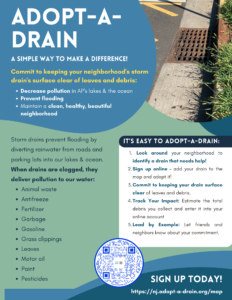
The Benefits of Leaf Mulching

A future butterfly
Have you wondered about the recent campaigns to “Leave the Leaves”? It means, rake them off any area where you truly want lawn, but find a home for them in your yard (ideally under their origin tree or under shrubs, etc.) and, for heaven’s sake, Don’t Shred or Blow them!
Here’s why:
The obvious, but incomplete, answer is that you’ll be more popular and help the planet by sparing your neighbors the noise and air pollution created by blowers. But it goes much deeper.
Caterpillars (future butterflies and moths) eat the leaves of particular native trees. When it’s time to begin their metamorphosis, 90% of them drop to the ground to camouflage themselves inside a protective chrysalis. They survive the winter sheltered in the leaves beneath their host trees or burrowed slightly below the ground along with other essential and beneficial insects, including the gentle bumble bee. Shredding and blowing these insulating leaves will end or significantly jeopardize their life cycles.
Besides protecting the population of beneficial insects, the gathered leaves will increase nutrients and absorbency in your soil for healthier plants – just look at the rich forest soil for evidence.
Find out more about the benefits of leaf mulching here:
https://xerces.org/leave-the-leaves
Newark College of Engineering (NJIT) Tests Out Algae Harvesting Machine on Deal Lake
If you were out walking near the Asbury Park Boat Ramp on the morning of August 20, you would have seen an array of very unusual looking machines launching at the ramp.
NJIT’s Engineering Dept was experimenting with a new Algae Harvesting Boat. They are testing the new machine’s ability to remove blue green algae from the lake.
This machine was manufactured in China and shipped to the USA for experimentation purposes.
The DLC is hoping to get the reports back from the professors involved in this project, so that Dr. Souza can speak about the results at our next DLC Meeting.
Monmouth County Sheriff’s Dept. To Patrol Deal Lake
The DLC has partnered with The Monmouth County Sheriff’s Department to improve boating safety on Deal Lake and to help preserve the lake’s shore line.
Sheriff Shaun Golden’s office developed a “Boat Safety” tri fold pamphlet for boaters. LINK
Officers will be cruising the lake, speaking with boaters about safe boating practices and distributing this new educational material.
The DLC is very grateful for the MC Sheriff’s Department’s support.
We especially want to thank Sheriff Golden for his part in working with the DLC to help preserve the lake’s shore line, educating the public and keeping boaters safer.
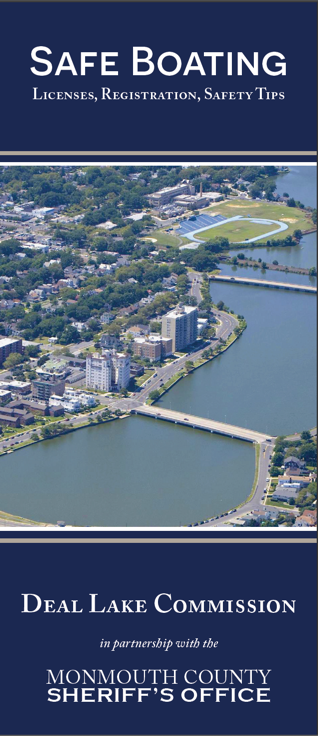
Invasive Weed Treatment
Some good Deal Lake News.
When left to grow and spread, fast growing invasive weeds like milfoil and parrot feather can destroy fish and wildlife habitat and stop recreation like kayaking and fishing.
Over the past two years, as part of our effort to control invasive weeds, the DLC hired a vendor to treat sections of the western part of Deal Lake.
After the treatments last spring, the results were visible, and there were far fewer weeds. DLC Environmental Scientist, Steve Souza, told the commissioners that it would likely take several years of applications to see the greatest reduction of weeds in those areas where the treatments were applied.
The weed treatments continued again this year in May and June.
The area west of the Wickapecko Bridge had been an area of thick overgrowth of invasive plants . The pictures below were taken looking west from the Wickapecka Bridge at the end of July. Today, there are no signs of the invasive weeds.
Dr. Souza has told the DLC that he feels the treatments have been very successful.
Sunset Lake Floating Wetland Islands Summer 2022
If you happen to be out walking around Sunset Lake this summer, you may have noticed how beautiful the Floating Wetland islands have become.
In early summer, we spotted blue irises blooming. All the plants have remained lush and green throughout the season.
The Floating Wetland islands are healthy and well anchored now. These green islands are a unique and creative way to manage nutrient runoff while providing an extra aesthetic pleasure.
April 21 Education Workshop for Public 6:15 PM was presented by Dr Jason Adolph before the DLC Meeting
View – Dr. Adolph Water Sampling Workshop – April 21, 2022
“What Have We Learned About Deal Lake Through Water Sampling, And Where Do We Go From Here?”


Thanks to Dr Adolph for a comprehensive and very interesting presentation on Water Sampling on Deal Lake.
Dr Adolph has been involved in training citizen scientist volunteers to sample the water from many sites around Deal Lake since, at least, 2019.
Dr Adolph shared the results of the data our DLC citizen scientists have collected. He presented the new method of tracking this data (CLONet Data Explorer), what we can learn about the lake from it, and how we can use this information.
We also thank our dedicated volunteers who have been sampling the water and reporting the data all year ’round.
Monmouth U. to Monitor Deal, Sunset Lake Conditions as Part of Statewide Probe of Harmful Algal Bloom Causes
Monmouth University has received a $127,600 grant from the New Jersey Department of Environmental Protection (NJDEP) to monitor Sunset and Deal lakes as part of a study of factors driving cyanobacterial harmful algal bloom (HAB) formation in New Jersey lakes.
DLC Science Expert Published in NALMS* Newest Edition
* North American Lakes Management Society
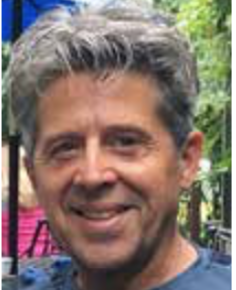
The Deal Lake Commission congratulates Dr. Steve Souza, the DLC’s nationally recognized lake expert and consultant, for his recent article published in the 2021-2022 winter edition of LakeLine. This prestigious magazine is distributed quarterly by the North American Lakes Management Society. (NALMS)
Dr. Souza’s article is entitled: Urban Lakes Restoration Challenges- Getting More Done Even When Faced with “LES” *
In this article, Dr. Souza provides the reader with a comprehensive background on urban lakes and the challenges these lakes face. He gives a historical look at the ways the Deal Lake Commission has approached Deal Lake’s challenges, as an urban lake, and the reasons for the commission’s successes in dealing with some of those difficulties.
We think you will find his article to be interesting and informative You can read the article here.
The DLC is proud of Dr. Souza’s latest achievement. We feel especially fortunate to have such an experienced and dedicated expert on our team.
Congratulations, Dr Souza!
* LES : Legacy Environmental Societal
Deal Lake Cited as Third Most Beautiful Lake in New Jersey
In their January 2022 newsletter, PlanetWare.com lists Deal Lake as the third most beautiful lake in NJ.
The article describes Deal Lake for its unique allure;
“water views, marine life, and nesting birds made its banks even more appealing…known for its great fishing, as well as being a wonderful spot to dip your oar while piloting a kayak.”
Of course, residents and Deal Lake users in our area agree!
Read the article here: https://www.planetware.com/new-jersey/beautiful-lakes-in-new-jersey-us-nj-44.htm?fbclid=IwAR3KXzXYeCrXq9e1Ug8up9a6ZjQrEhAy2j5TKljlJMViOoaEAOa7QQn91gI
DLC EDUCATIONAL BROCHURES
The Deal Lake Commission has written a “Guide For Lake Front Property Owners”.
The brochure provides lake front property owners info about what to do prior to clearing of any vegetation, grading or building along the lake front.
The DLC hopes that this education effort will help cut down on destruction of the lake bank that causes destabilization of the shoreline, increased erosion and sedimentation.
Brochures have been delivered to all lake front property owners and the the municipal offices we serve have received them for distribution to their construction departments.
The DLC would like to thank our dedicated group of volunteers: Matt Van Hoosterhout, Laura McBride, Jennifer Zarcone, Jeff Gould, Eddie Winder, Jeannie Toher, and Carolyn Roarty. These volunteers hand delivered all brochures by going door to door. No small effort! Thanks to all of you for braving the cold!
The brochure can be seen in its entirety here: BROCHURE
Asbury Park High School Engineering Academy Students Learn from DLC Experts in October
The DLC’ takes its mission to promote education about Deal Lake around our community seriously.
As part of the NJDEP 319 Water Quality Improvement Grant, our science consultants and engineering experts involved with the 319 grant worked with Asbury Park High School engineering teacher Kevin Gould and his students.
DLC science consultant, Dr. Jack Szczepanski prepared a virtual presentation called “Ecology and Engineering in Asbury Park” for Mr Gould’s students.
Our engineering consultants Peter Avakian and Matt Martino also held virtual meetings with students in preparation for their field trips to see the installation of the new Manufactured Treatment Device in Asbury Park.
The pictures show students watching the installation on Memorial Drive and then on the following week, students were invited to watch the Dept of Public Works cleaning out an MTD on Comstock Street.
Mr Gould said that his students were very enthusiastic about all of their experiences with the DLC. It helped make engineering ideas come alive for them.
The Third Manufactured Treatment Device Installed in Asbury Park


The third Manufactured Treatment Device that the DLC purchased through a NJDEP Water Quality Restoration Grant has been installed on Memorial Drive in in Asbury Park. This, the largest of the three MTD devices recently installed in Asbury Park, will help treat storm water run off from the railroad watershed from the Asbury Park post office area to Sunset Ave.
Two smaller devices were installed on Sunset Lake two weeks ago. (See post below)
The DLC would like to express our sincere appreciation for the cooperation by the City of Asbury Park with this project. The Asbury Park Police and the Asbury Park Dept of Public Works have been stellar!
We could not have done this project without their efforts! Thank you to the Asbury Park employees who helped us with this enormous project!
MTDs installed in Sunset Lake
The DLC is happy to report that two Manufactured Treatment Devices were installed along Sunset Lake the week of October 4th.
A manufactured treatment device is a pre-fabricated stormwater treatment structure utilizing settling, filtration, absorptive/adsorptive materials, vortex separation, vegetative components, and the appropriate technology to remove pollutants from stormwater runoff.
One MTD was installed at the corner of Grand and Sunset Aves in Asbury Park. The second installation was done at 5th and Grand in Asbury Park.
These devices were purchased by the DLC with funds from a generous NJDEP 319 Grant that will help to improve water quality in Sunset Lake by decreasing the influx of sediment and trash into the Sunset Lake.
GREAT NEWS! GOVERNOR MURPHY SIGNED THE LAKES BILL!
Governor Murphy Signed the Lakes Bill ( S3618 ) on Sept 24.
Thank you, Assemblyman Eric Houghtaling, for sponsoring this bill!
We also thank all of you who contacted the Governor to encourage him to sign this important bill.
This bill will make supplemental appropriation of $10 million for grants for certain lake management activities for recreation and conservation purposes.
Bill S3618 will allow qualified entities to apply for grants from the DEP to do such things as: improve water quality, increase recreational access and use of lakes, including projects to control nutrient levels in lakes in order to prevent future harmful algal blooms, storm water and non point source pollution management activities. Plus the DEP will be funded to create a single POC within DEP for our lakes.
Floating Wetland Islands Installed – Thank You to All Volunteers
The Deal Lake Commission would like to thank the 30+ volunteers who helped install 6 floating wetland islands in Sunset Lake and 6 in Wesley Lake on June 16 and 17. We’d also like to thank the City of Asbury Park for their assistance with this project.
The Deal Lake Commission was awarded a Clean Water Act Section 319(h) grant by the Environmental Protection Agency to install the islands, with the help of aquatic engineers from Princeton Hydro.
Floating Wetland Islands improve water quality of stormwater runoff and manage watershed nutrients, as well as treatment of wastewater and other industrial contaminants through natural processes. In addition, the Floating Wetland Islands present an excellent educational opportunity for the community.
More information about Floating Wetland Islands can be found here.
NBC TV News produced this segment about the Floating Wetlands Project. See it here:
The DLC Supports Assembly Bill A4322 to Ban Outdoor Balloon Releases
Balloons are pretty, festive, and fun, but released outdoors they have been shown to be lethal to birds, wild life and marine life. They rank #3 of deadliest trash items found in waterways and beaches.
Bill A4322, introduced by NJ Assembly Members Houghtaling (NJ-11) and Downey (NJ-11), prohibits the intentional outdoor release of balloons throughout the state, and requires better control of outdoor mass balloon releases.
We encourage Deal Lake Advocates to learn more about Bill A 4322, to contact your legislators if you would like to support the ban and/or to sign this petition.
Electrification of The Flume – News
New Rain Garden Park on Deal Lake
In October, the Deal Lake Watershed Alliance began construction of the new Wickapecko Lakeside Rain Garden Park. Plants are being installed.
A rain garden is a garden of native shrubs, perennials, and flowers planted in a small depression, which is generally formed on a natural slope. This garden is designed to temporarily hold and soak in rain water runoff.
The Deal Lake Commission congratulates the DLWA for their important efforts to help remedy sediment build up and reduce run off into Deal Lake. Thank you, DLWA!
Nature Paddle & Tours on Deal Lake
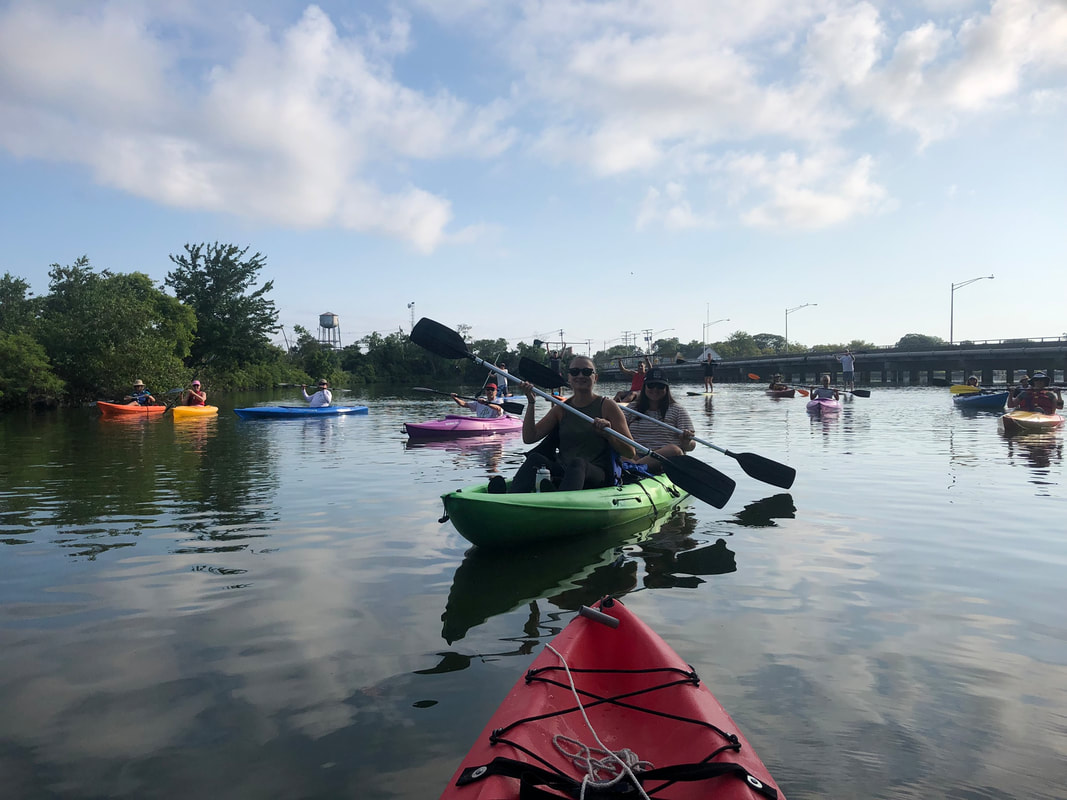
It was a beautiful breezy day for the September 14th paddle on Deal Lake led by Bob Jaroszewzki. (more pictures of the tour)
Lake Poster Contest
As students study at home during the COVID-19 Pandemic – the Deal Lake Commission promoted a Poster Contest sponsored by the North American Lake Management Society. This fun activity gave students and their school a chance to win cash prizes.
- Andre-Jackson – 1st Grade
- Angel-Olguin-Espana – 3rd Grade
- Ashley-Hernandez-Gonzalez – 2nd Grade
- Jhon-Felipe-Arias – 3rd Grade
- Justin-Contreras – 2nd Grade
- Krystal-Green – 2nd Grade
- Leslie-Garcia-Riano – 3rd Grade
- Mia-Holly – 2nd Grade
- Yermi-Cifuentes-Perez – 5th Grade
Ms. Juslaine Costanza, an art teacher at Asbury Park’s Bradley Elementary School, submitted these pieces of her students’ art work to the Lake Management Society and shared them with us.
We are grateful to Ms. Costanza and honored to post the lovely art work of these young Asbury Park students!
News from Our May Meeting:
MTDS: Peter Avakian spoke about the newest developments in the 319 Grant and showed the locations for the new Manufactured Treatment Devices that will be placed in Sunset Lake and Deal Lake.
Great Lakes of NJ Efforts: Dr. Souza spoke about the new DEP Blue Green Algae Alert changes.
Flume Electrification: Green indicator lights are operating at the flume now. Green light on means the flume is open. Gauge placement for three gauges is being planned.
News From Our April Meeting:
During the April meeting, the DLC discussed such things as;
- Continuing lake testing and reporting to CloNet (Monmouth University)
- Progress on the Flume Electrification Project
- the Water Quality Restoration 319 Grant
- Weed Control Project
- Weed Control Proposals
Dr. Souza’s memo on this topic can be seen here: https://deallake.org/grant-proposal-requests/. Updates, video and photos of the new flume gate can be seen on the DLC Facebook page (March 23 post).
News From our February Meeting:
The Deal Lake Watershed Alliance met with the DLC for our first workshop. We discussed ways that the DLWA and the DLC can work together to help to restore and protect the lake. A number of cooperation opportunities were discussed. The DLWA has begun talks with legislators and the owners of Seaview Square Mall about reducing water volume and sediment run off. The DLC will support this effort.
Among other items on the agenda, the DLC emphasized the need for local geese control efforts. Goose fecal matter contains high phosphorus and the average goose deposits 1.5 to two pounds of fecal matter per day. Phosphorus supports algae growth.
If you see goose nesting sites, please help by reporting the nesting area you see to the official in your town who can take appropriate action (see link to contacts).
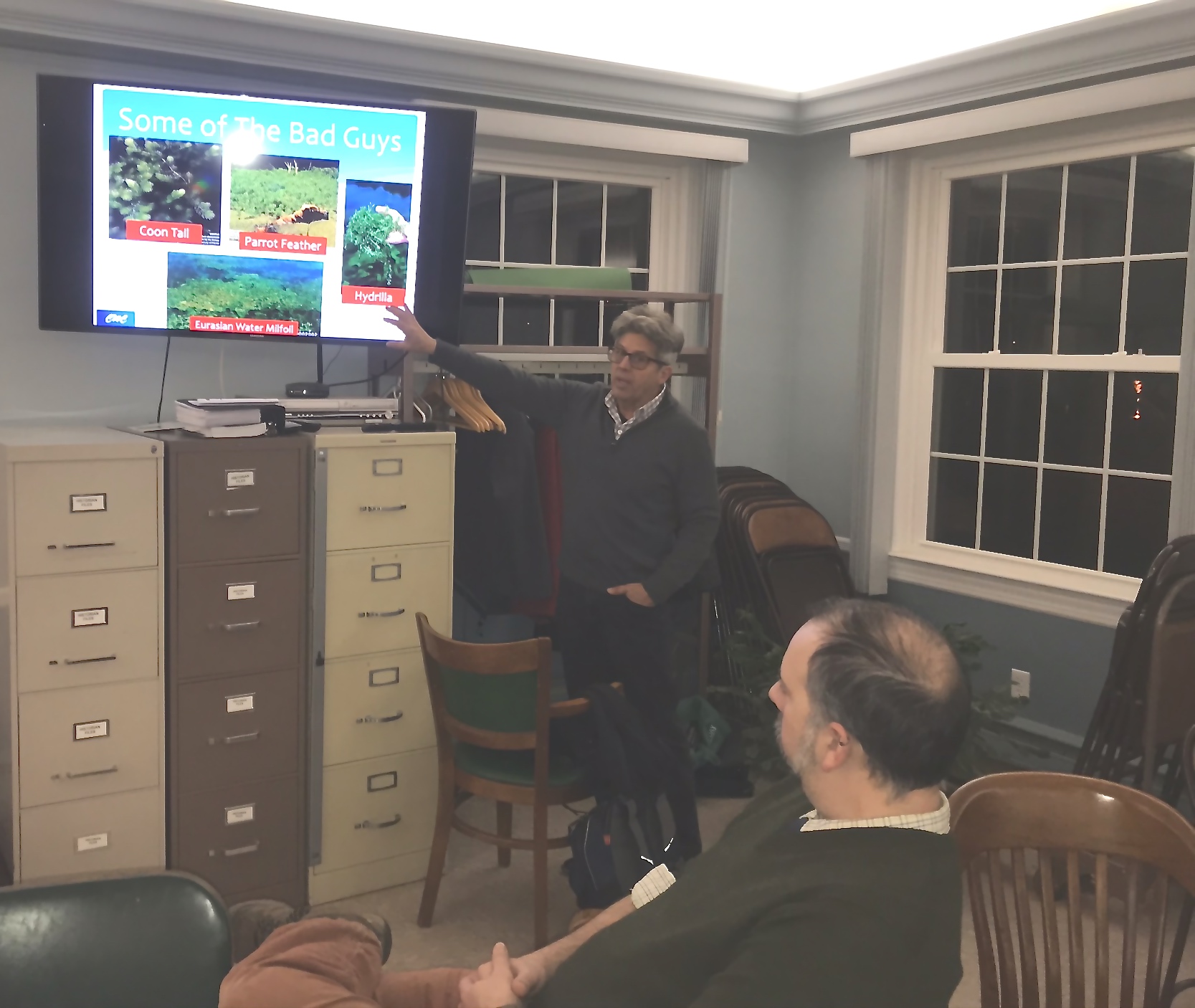
Dr. Souza gave a talk on Weed Control methods and safe, low toxicity ways to treat invasive weed overgrowth. He identified some areas of invasive overgrowth . The DLC is sending out Requests for Proposals to treat those areas.
News From our January Meeting:
319 Grant: Educating the Communities:
As part of the 319 grant objectives; the DLC started a first in a series of educational brunches for city personnel and leadership in the seven municipalities that we serve. The educational programs are offered to help attendees to gain an understanding of the value of grey and green infrastructure storm water management and their role in improvement of water quality of the local lakes.
New Commissioners:
During the January organizational meeting: the DLC welcomed two new commissioners to the DLC.
Interlaken’s new representative is Carolyn Roarty. Loch Harbour’s new representative is Margo Fernicola. Welcome new commissioners!
Citizen Scientists/Water Testing
We had a very positive response to our call out for Citizen Scientists to help test the lake. Our newest CS volunteers braved the 20 degree temps to complete their training with Dr. Adolph recently. Some eager participants have already begun testing the water at designated spots at regular intervals. This data will add to the information regarding quality and chemical composition being collected by other parties. Lake monitoring will play a role in detecting changes and determining the lake’s overall health and viability over time.
News From our December Meeting:
December Agenda
Topics included:
Water Test Reports: from Clean Ocean Action and Ship and Sniff
Flume Electrification:
Leon Avakian Engineers provided an update on the Flume Electrification Project. The flume should be completely automated and operational by late spring. They will not need to do any more lake lowering for this project.
Progress of Water Quality Restoration Grant:
Plans for Green Infrastructure and Manufactured Treatment Device locations have been identified.
WQR Informational Breakfasts will be provided for municipal officials and personnel, and lake commissioners on January 9th . Subsequent meetings will follow.
Weed Treatment:
The DLC voted to authorize Dr. Souza to prepare a Request for Proposals for weed treatment of identified hot spots for a spring treatment.
News From our October Meeting:
Special Presentation:
Thanks to all those who attended the October DLC Meeting and presentation: “Storm Water Management and Green Infrastructure for Property Owners”.
Here is a link to the Presentation as presented by Dr Souza and Jeannie Toher at the 10/19 DLC meeting. Great resources in this presentation.
Flume Electrification Project:
Peter Avakian discussed the progress of the Flume Electrification Project. You can see photos of this progress on our Facebook page.
DLC Meetings Will Be Televised:
Thanks to Asbury Park for paying to record and televise DLC meetings starting with our October meeting.
APTV is available within Asbury Park on Optimum 77 and throughout most of Monmouth County on FiOS 30. People outside of the city can watch APTV on the APTV website, www.asburyparktv.com, or by downloading our app on Apple TV or Roku devices. To find the app search “APTV.”
Flume Electrification Project Is Progressing
During the DLC’s June meeting: DLC Consulting Engineer Peter Avakian presented plans for the Flume Electrification Project to begin soon (for more information go to Bid, Grant & Proposal Requests
Why are some of New Jersey’s lakes suddenly off limits at the peak of our summer swimming season?
More often than not the reason for the closing is a harmful algae bloom (HAB).
Click below to read Dr. Souza’s article on this topic:
“More Nutrients Are Not Always a Good Thing: The Case for a Harmful Algal Bacteria Standard in NJ“
Great Blue Heron Party on Deal Lake!
Photo courtesy of Janis Rush
What Watershed Residents Can Do To Help Deal Lake:
- Do NOT feed the geese or any Fowl. 1 adult goose produces 2 pounds of waste per day.
- Report Goose nests to town offices or the DLC in the March-May time frame.
- Leave grass clippings on your lawn, compost away from the lake and/or dispose as instructed by towns. BUT please do not place them in the street.
- Use less fertilizer or low phosphorous type.
- Spread fertilizer a few days or more prior to heavy storms. Know the weather!
- Pick up after your pet.
- Sweep and containerizing the dirt and debris in the curb by your Home/Business.
- Do not blow grass clippings and yard waste into the lake or streams.
- Pick up litter during your walks around the lake or for that matter anywhere. Keep America and your Lake Beautiful
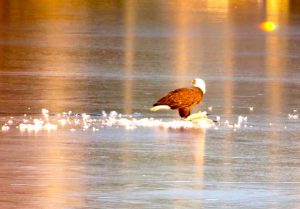
Photo courtesy of Janis Rush
Deal Lake is a Treasure!
Deal Lake is a beautiful treasure savored by residents, vacationers, fishermen and boaters for over a century. Lenni Lenape Indians would fish and eat the bounty of clams and oysters. During Colonial times the British harvested seafood to be sent back to England. During the Revolutionary War, Patriots would execute small attacks on British ships retreating to Deal Lake for cover from the British Navy as they fired their cannons at them.
Called Lake Uliquecks by the Lenape Indians, an 1781 map shows Deal Lake was known as White’s Pond. In the early 1800’s it was known as Hogs Swamp Pond. On the 1851 Lightfoot map, it was called Corlies Pond or Great Pond while Sunset Lake was known as Little Pond. An 1873 map calls it Boyleston Great Pond and shows it still is accessible to the ocean. With the engineering completed around 1890, Deal Lake was created as it is known today, closing off the inlet and creating several separate lakes and ponds. Deal Lake was a model system of the late nineteenth century for Flood Control and Storm Water Management. Over time, the lake lured many to build along its banks. Today, almost the entire shoreline has been developed with many homes built within the 100 year flood plain.
The Deal Lake Commission was created by the seven Monmouth County, NJ towns that surround Deal Lake. The Commission was chartered in 1974 by the Borough of Allenhurst, City of Asbury Park, Borough of Deal, Borough of Interlaken, Village of Loch Arbour, Neptune Township, and Ocean Township.
Today, the Commission oversees the vitality, on-going maintenance and restoration to preserve Deal Lake for future generations. Each town appoints one volunteer Commissioner to serve annually. Commissioners give of their time because of their love for this lake and for their desire to preserve this treasure for future generations.
Help Save Our New Jersey Watersheds
with New Jersey Lake Watch
Useful Environmental & Emergency Links
> Click Here for Flood Insurance Rate Helpline
> Click Here for Useful Information on Proper Leaf Maintenance and its Environmental Impact
New Jersey Department of Environmental Protection Hotline.
The Department has establised a new toll-free telephone hotline number you can use to report environmental incidents, abuses, and complaints in New Jersey. The 1-877-WARNDEP number can be used in the New Jersey, New York, Pennsylvania, and Delaware calling areas.:











